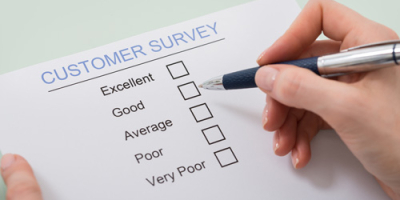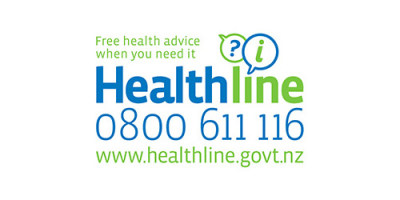-
Patients & Visitors
Patients & Visitors

Compliments and complaints
To help us to better understand patient experiences, and improve the way we work, we welcome your feedback.
Submit your feedback - Hospitals & Healthcare Providers
- Public Health
-
Health Services
Health Services
Mental health and addiction services
- • Acute and urgent mental health services
- • Inpatient and Outpatient Specialist Mental Health Services
- • Community mental health services
- • Child and youth mental health services
- • Older Persons' Mental Health
- • Alcohol and drug addiction services
- • Free Phone Helplines
- • Suicide prevention
- • Advance Directive in Mental Health
-
Contact
Contact

Healthline
Healthline is here to help you 24 hours a day, 7 days a week. Phone calls are free from within New Zealand – this includes calls from a mobile phone.
View Healthline's website - About Us
Mental Health & Wellbeing
Experiencing a disaster can be overwhelming. It’s normal for you and your whānau to feel upset, anxious and physically drained during and after an emergency event. But there are things you can do to feel better.
Good mental health helps us carry on and deal with all that life throws at us.
Upcoming Mental health and wellbeing workshops:
Hato Hone St John is running three wellbeing courses in February, specially designed for people who have been impacted by the July 21 and August 22 storms
Has your mental health and wellbeing been affected? Or do you worry about someone else and don’t know how to help them?
The courses are on three consecutive days at Waitaria Bay, Portage and Linkwater on 21, 22 and 23 February.
The two shorter courses - on 21 and 23 February - are designed around the school day and are a condensed version of the full course.
- 21 February - Waitaria Bay - 9.30am to 3.00pm
- 22 February – The Portage - 8.30am to 4.30pm
- 23 February – Linkwater - 9.30am to 3.00pm
Registrations are essential. Each course requires a minimum of 12 and a maximum of 20 people to go ahead. The courses are free of charge and include lunch and refreshments.
Struggle Got Real? Text or Call 1737
You can text or phone 1737 to speak to a trained counsellor. They can help if you:
- need support or advice
- have feelings of anxiety, stress, prolonged fear, hopelessness or anger, or
- you just need to talk with someone.
Understanding Mental Wellbeing after an Emergency

The body's response to significant events:
-
During scary or surprising events, our brains react chemically – releasing adrenaline. This response is our natural alarm system – our body telling us to be alert and ready for action.
-
It's there to help us, but afterwards, we can feel shaky, queasy or on-edge, and it can make it hard for us to concentrate.
-
It can also result in strong emotional responses such as anger or crying.
It's all right to be a bit all over the place
-
In challenging times we can go through a range of emotions, and at our own pace.
-
Feeling like you're all over the place, a tad on edge or a bit overwhelmed are completely normal reactions to a very abnormal situation. So too is needing to get on with things or taking time out for yourself.
-
Wherever you're at, know that there are simple things we can all do to look after ourselves and others
Ways to Look After Your Mental Wellbeing
5 Ways to Mental Wellbeing:
- Connect - with the people around you. You don't have to do this alone. Connecting with family, friends, colleagues and neighbours will support and enrich you every day.
- Be Active - step outside. Play a game. Garden. Dance. Exercising makes you feel good.
- Take Notice - be aware of the world around you and what you are feeling. Reflecting on your experiences will help you appreciate what matters to you.
- Keep Learning - learning new things makes you more confident, is fun and can be a great distraction!
- Give - do something nice for a friend, neighbour or a stranger. Seeing yourself, and your happiness, linked to the wider community can be incredibly rewarding and creates connections with the people around you.


Bonus for well-being during an emergency:
-
Consider taking a break from the news and social media - it's ok to take a break so you can focus on other things - doing so doesn't belittle the event but it can help you to calm your nerves. It's also a great idea to connect with friends and loved ones.
Managing Stress
From the Ministry of Heath - if you or someone you know has been through a traumatic event, you may be feeling stressed or anxious.
- understand emotional reactions to a crisis
- learn positive ways of coping
- identify when to get extra help that will enable you to cope better.
Learn about the common emotional reactions you may have after a traumatic event. Even though these feelings can be unpleasant, they are normal reactions.
Coping personally: general information for communities
If you’re coping with a disaster, it’s important to know normal reactions to this type of emergency, positive ways of coping, and when to get extra help.
Tips on how family members can help each other out in a time of crisis.
Suggestions on how adults can help adolescents cope with a crisis.
Advice on how to help children who experience traumatic events, or hear about them happening to their family and friends.
How to cope with stress and reduce tension after an emergency.
The stress of being under threat
Learn about common stress reactions when under threat, how to manage these reactions, and how to help children cope with the threat.
When someone you know has been through a traumatic experience
Information about the effects of trauma, and advice about how to help those suffering from it.
Supporting Tamariki Mental Wellbeing

It is better to discuss with children what has happened. Giving them the facts (but without unnecessary detail) helps prevent their imagination taking over.
Encourage them to express emotions. Fear and sadness are their way of coming to terms with what has happened. Hold them or stay with them, offer support while they are upset and then talk about it afterwards.
Some tips for supporting children's mental wellbeing:
-
Keep communication open by asking questions to find out what they are thinking or imagining. Tell them how adults feel and what the actions of adults under stress mean. This will prevent children blaming themselves.
-
Reassure them about the future, especially the small details of life which are such an important part of their world.
-
Encourage them to continue to be children, to play, explore and laugh when they want to, even though the adults may not feel like it. Children are often able to take their minds off the trauma better than adults.
-
Maintain routine and familiarity to help children see that life is secure and predictable.
-
Reduce change of any type to a minimum. When change is necessary, take time to prepare children for it.
-
Keep them informed of how their recovery is going and what to expect.
-
Don’t make this the time to correct bad habits, don’t overreact to unusual misdeeds or bad behaviour.
-
Talk about the behaviour with the child; they may need to let their tension out somehow.
-
Give children time to sort themselves out with your support, don’t expect it to be over quickly.
-
Keep track of the child; remember what she or he does and says, try not to let lasting changes in temperament and behaviour creep up without noticing.
-
Make time for just being together. Take time out and re-establish recreational activities and outings as soon as you can. Pleasure is an important part of healing.
-
Re-involve the child in chores and responsibilities as soon as they are ready to cope with them again.
-
Take seriously all their concerns, complaints and questions. They may be trying to express something important which they don’t have the right words for. Parents need to get support to work through their own reactions, so they can help their child.
Resources:
For information on how to support kids through challenging times check out this great advice from our friends at Sparklers at Home: Worries 101 (sparklers.org.nz)
Find more resources for adults, children, and caregivers dealing with recovery stress
Key things to remember
Everyone reacts differently
Some people may never have a reaction. Others may have delayed reactions that show up days, weeks or even months after the disaster happens. Not everyone has reactions right away. Your symptoms may go and then come back again when something makes you think of the disaster.
After a disaster, be sure to talk to someone about how you are feeling. Your general practice will be able to help connect you. There may be a specialist post-disaster crisis counsellor appointed in your area.
You're not on your own
Sometimes it’s hard to reach out to people around you. Think about ringing a community group for a chat, catching up with your neighbour, listening to the radio, or ringing your family. Maybe you can offer help to others?
Resources for Front-line Workers
Flooding can have devastating effects on a farm business, affecting livestock, land, and buildings.
Rural Support Trusts have local people who are trained to offer assistance and support, and their help is free and confidential.
For rural support, please contact them via:
Phone 0800 787 254 or visit their website:
Please don’t be whakamā to ask for help. For hauora support, call Te Tauihu Māori health provider Te Piki Oranga on 0800 ORANGA (0800 672 642).
For general support, please call Te Kotahi o TeTauihu Trust on 0800 514 358
You can also call the Whānau Ora navigators at your local marae or iwi office.
The Ministry for Pacific Peoples has knowledge and understanding of Pacific people, cultures and values and can provide tailored support for Pasifika.
For support please contact the Christchurch Regional Office via:
Phone: 03 366 7202
Email: [email protected]
In emergencies, Work and Income can help with costs if you don't have any other way of paying.
Work and Income can help with medical costs, bedding, food, power bills, repairs or replacing appliances, emergency accommodation costs
Call 0800 559 009 or visit their website:














